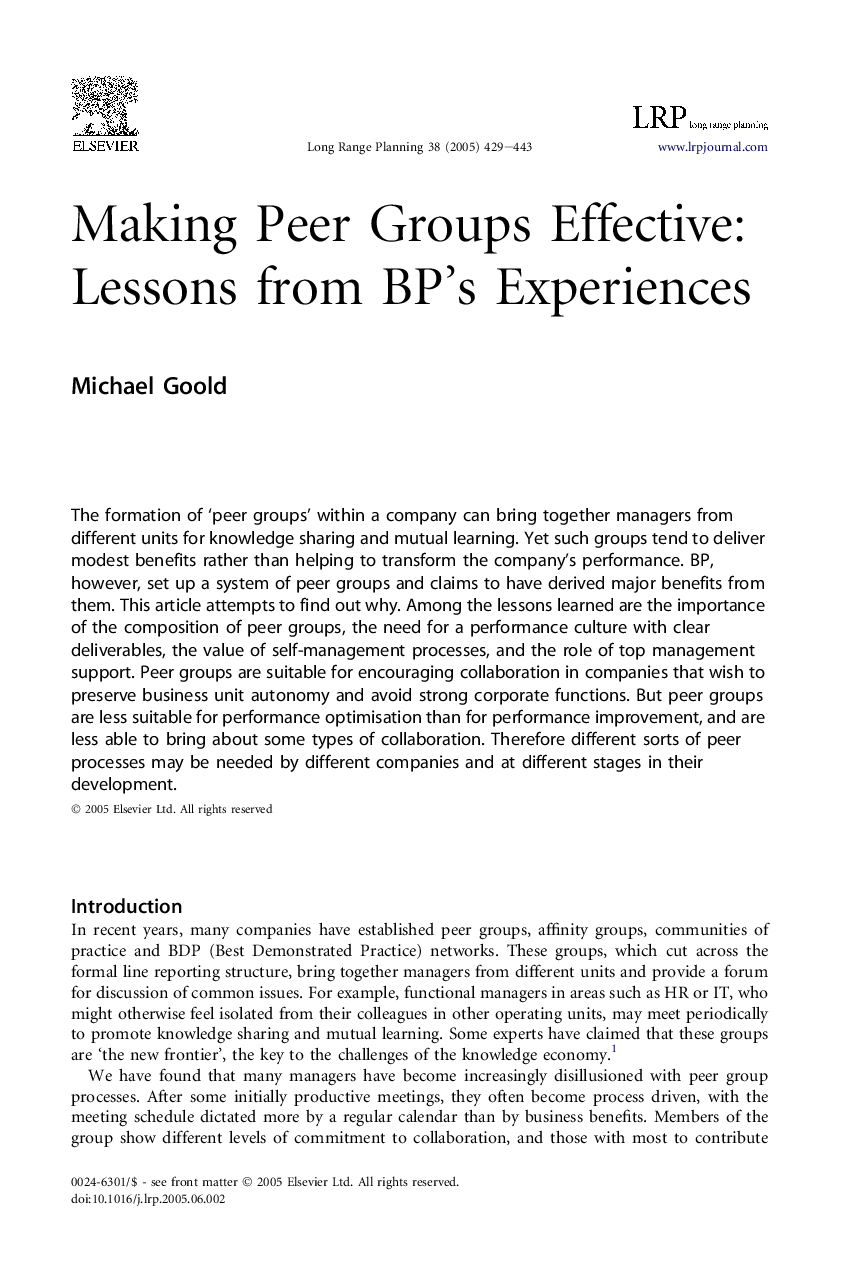| Article ID | Journal | Published Year | Pages | File Type |
|---|---|---|---|---|
| 10494486 | Long Range Planning | 2005 | 15 Pages |
Abstract
The formation of 'peer groups' within a company can bring together managers from different units for knowledge sharing and mutual learning. Yet such groups tend to deliver modest benefits rather than helping to transform the company's performance. BP, however, set up a system of peer groups and claims to have derived major benefits from them. This article attempts to find out why. Among the lessons learned are the importance of the composition of peer groups, the need for a performance culture with clear deliverables, the value of self-management processes, and the role of top management support. Peer groups are suitable for encouraging collaboration in companies that wish to preserve business unit autonomy and avoid strong corporate functions. But peer groups are less suitable for performance optimisation than for performance improvement, and are less able to bring about some types of collaboration. Therefore different sorts of peer processes may be needed by different companies and at different stages in their development.
Related Topics
Social Sciences and Humanities
Business, Management and Accounting
Business and International Management
Authors
Michael Goold,
